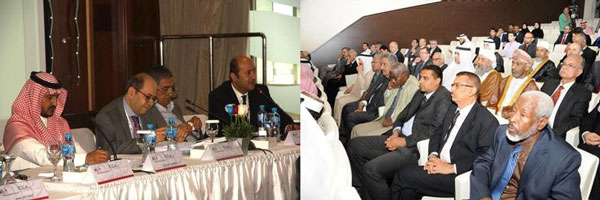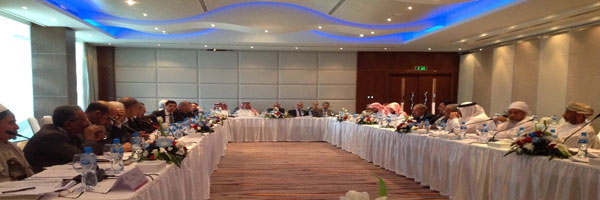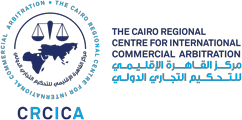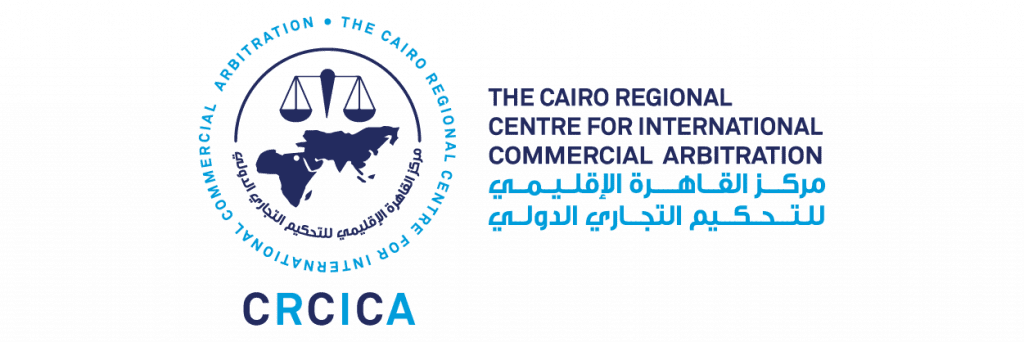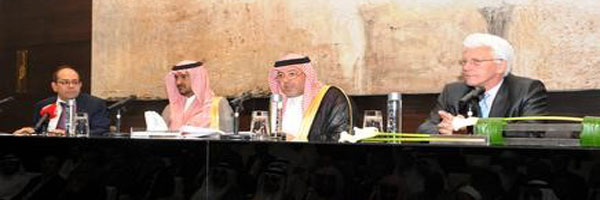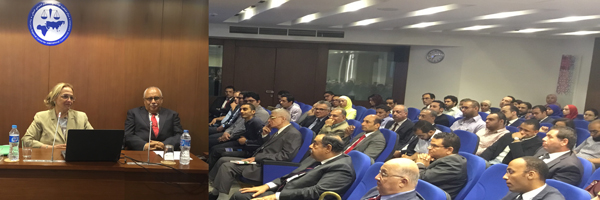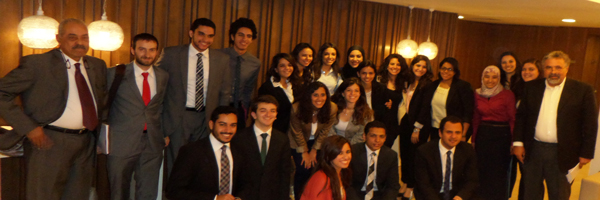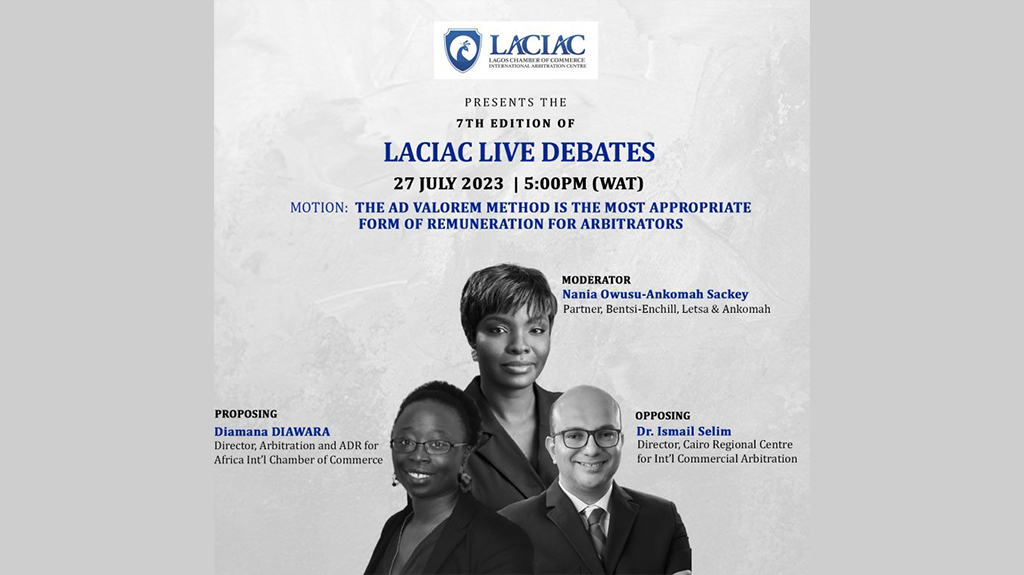The International Council for Commercial Arbitration (ICCA) held the New York Convention Roadshow from 3 to 5 May, 2014 in Manama, Bahrain. The Roadshow was the first of a series of planned dialogues on the 1958 convention in Bahrain and the Arab World and accompanied the publication of an ICCA guide to its interpretation and application, in Arabic. ICCA has already held similar dialogues in Mauritius, bringing together judges from 13 African countries.
The Roadshow was organised by Mrs. Marike Paulsson, a member of ICCA’s judiciary committee, and Prof. Nassib Ziadé, CEO of the BCDR-AAA. Discussions were led by Prof. Nassib Ziadé along with Dr. Hamza Haddad Director of the Law and Arbitration Centre in Amman and Dr. Mohammed Abdel Raouf, CRCICA Director in his capacity as member of ICCA’s governing board and judiciary committee. Bahrain’s Judge Yousif Al-Akyabi also steered discussions.
The Roadshow was launched on the evening of 3 May, with speeches from Ziadé, Jan Paulsson, Bahrain’s minister of justice and foreign affairs Shaik Khalid Bin Ali Al-Khalifa, and His Highness Prince Dr Bandar Bin Salman Al-Saud, a member of the Saudi royal family who leads the Saudi Arbitration Centre in Riyadh. The launch was attended by the Bahraini minister of culture, Shaikha Mai Bint Mohammed Al-Khalifa and Arab ambassadors in Bahrain.
Supported by the Kingdom of Bahrain’s Supreme Judicial Council, the BCDR-AAA and the Arab League, the Manama Roadshow brought together judges from the appeal and cassation courts of 13 Arab countries and came up with recommendations to improve the recognition and enforcement of arbitral awards in the Arab World.
A total of 51 judges attended from Bahrain, Dijibouti, Egypt, Jordan, Kuwait, Libya, Lebanon, Mauritania, Morocco, Oman, Palestine, Saudi Arabia and Yemen. Their recommendations included that ICCA and the Bahrain Chamber for Dispute Resolution (BCDR-AAA) should collaborate to launch a website of judgments rendered in Arab countries regarding the recognition and enforcement of foreign arbitral awards; that Arab judges should work towards a unified judicial approach in this area; that legislative bodies in Arab countries should coordinate to remove contradictions in their relevant legal regimes; and that Arab countries that have yet to accede to the convention should do so.
There were also calls for Arabic to be accredited as an official language for international treaties and agreements related to international commerce and international arbitration.
Finally, the delegates pledged to highlight to the international arbitral community the flexible nature of Islamic shariah law and its easy integration into commercial contracts and arbitration rules. The complete list of recommendations is available here.
Those wishing to assist with the ICCA and BCDR-AAA website for Arab judgments relating to the recognition and enforcement of arbitral awards should email bureau@arbitration-icca.org.
